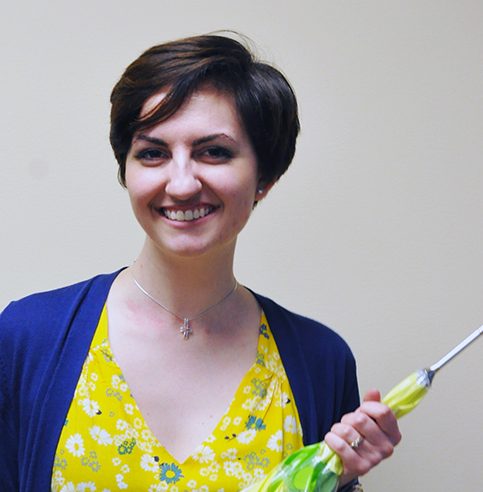You are reading a peer-reviewed article. Two other people read and reviewed this column before it was printed in The Gannon Knight.
I know what you’re thinking. “But wait, aren’t I in the opinion section of the newspaper? Isn’t this somebody’s own commentary on the next-to-dystopian world I’m living in?”
The answer is yes. And no. While The Knight’s perspective pages are the only place to find more subjective material, we practice fact-checking on the student paper, believe it or not.
Don’t believe me? Neither did one of my Writing Center clients. I love the look of sheer disbelief on students’ faces when I tell them they can in fact use the news to supplement their research.
In all fairness, there probably aren’t many peer-reviewed articles about stories that started out in the news like the Michael Brown case.
I suppose I should acknowledge the elephant in the room, which seems to be the reason why students are so reluctant to cite the media in legitimate research.
What about fake news? Aren’t all the stations biased and brainwashing us to follow their wishes like sheeple?
I suppose if you’re into labels and the myth that mainstream media are all part of Big Brother’s plan to misinform you, then yes. Sure. Whatever coddles you and makes you feel validated.
I’m not a journalism major, but I’ve taken three journalism writing courses where we talked about the standards in journalism – the first of which says journalists need to strive for accuracy in all stories and take responsibility for it, no excuses.
Would you discredit a doctor’s training if he or she diagnosed you with a broken leg just because he or she missed a diagnosis before? Probably not.
Journalists are trained to seek and report the truth, and labels like “fake news” discredit our training. And the writers who fabricate stories for click-bait “news” articles don’t see themselves as journalists in many cases, according to “60 Minutes.”
The CBS news magazine did a piece on “fake news” and talked to Jestin Coler from National Report, who said he saw his stories as fiction, although he acknowledged many people took them for fact. Coler said people are more likely to trust stories that look like news online, even if the facts don’t quite add up.
For example, one site stated Donald Trump’s colonoscopy found a brain tumor. I’d consider it possible to find Trump’s head near his backend, but some people treated this story as real .
“60 Minutes” also interviewed Michael Cernovich, the “self-made” reporter from “Danger & Play” who wrote an article claiming Hillary Clinton had Parkinson’s after talking to an anesthesiologist who never examined her.
He’s also the byline behind the “Pizzagate” story, another fictional claim that the Comet Ping Pong pizza shop in Washington was part of a sex trafficking circle run by Clinton’s cronies.
And Cernovich believes he’s doing people a favor with his fabricated “news” stories.
Well, Michael, the news is about using accuracy to inform the people. Maybe you should try it sometime.
KELSEY GHERING
[email protected]




